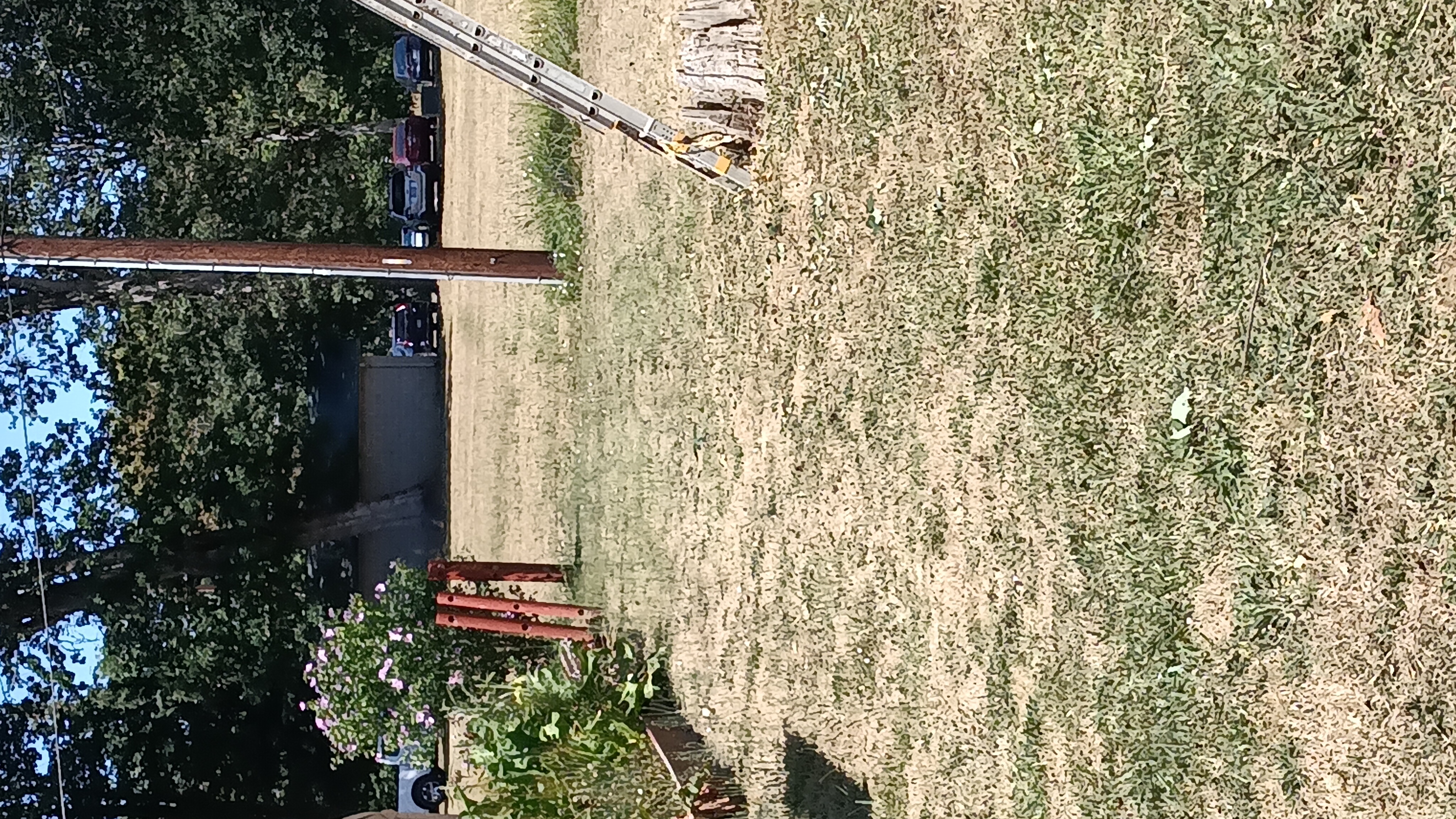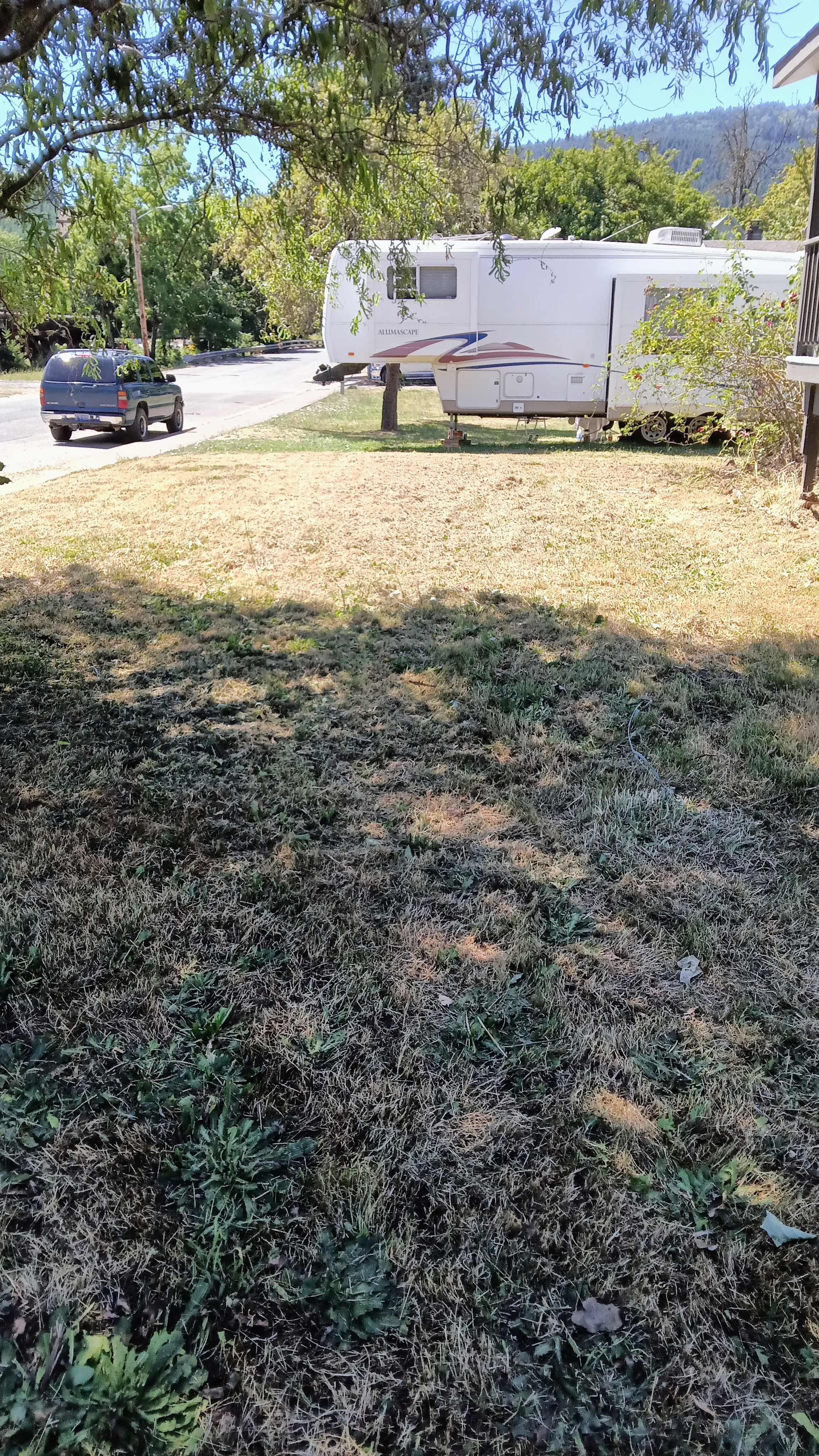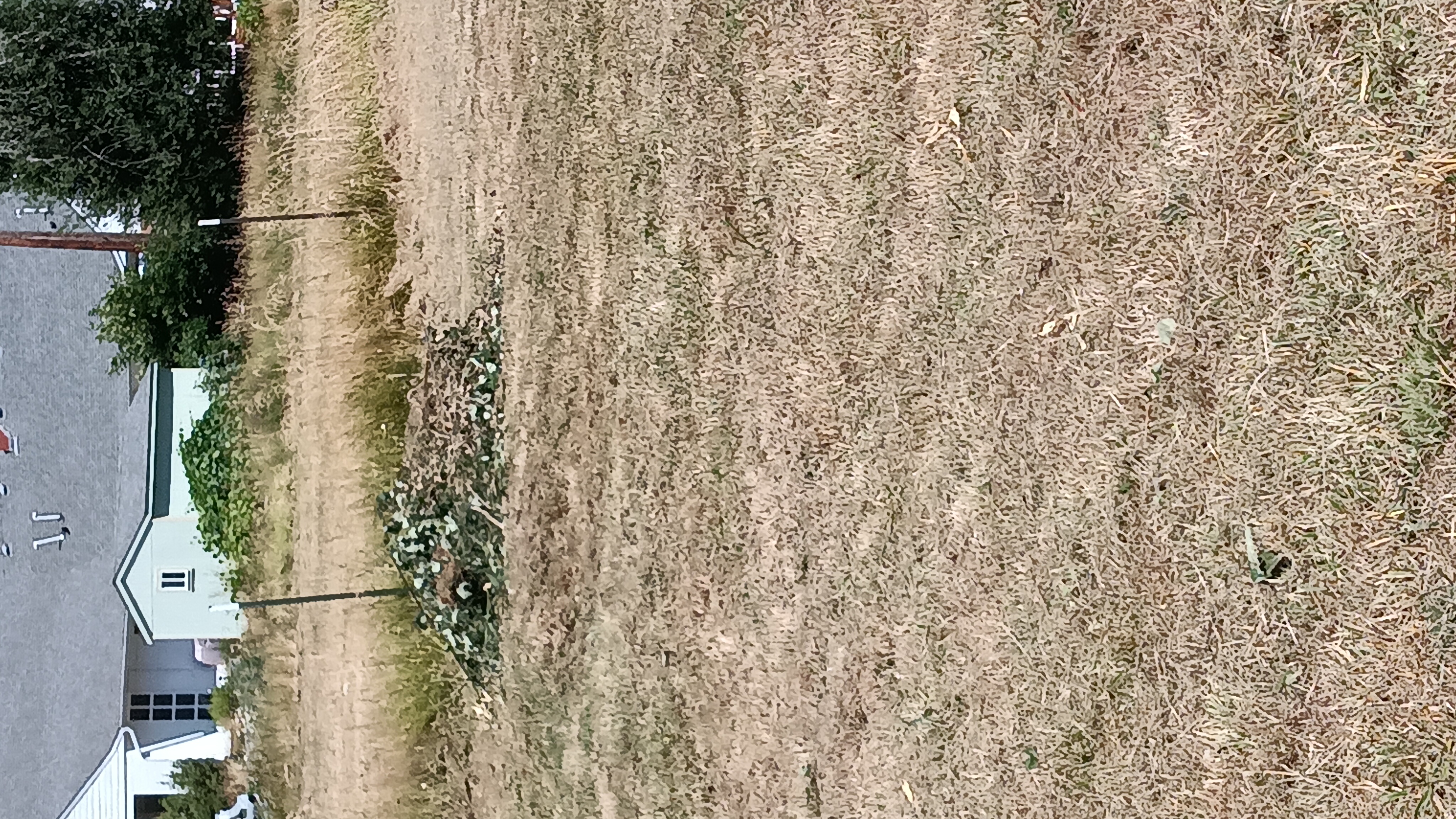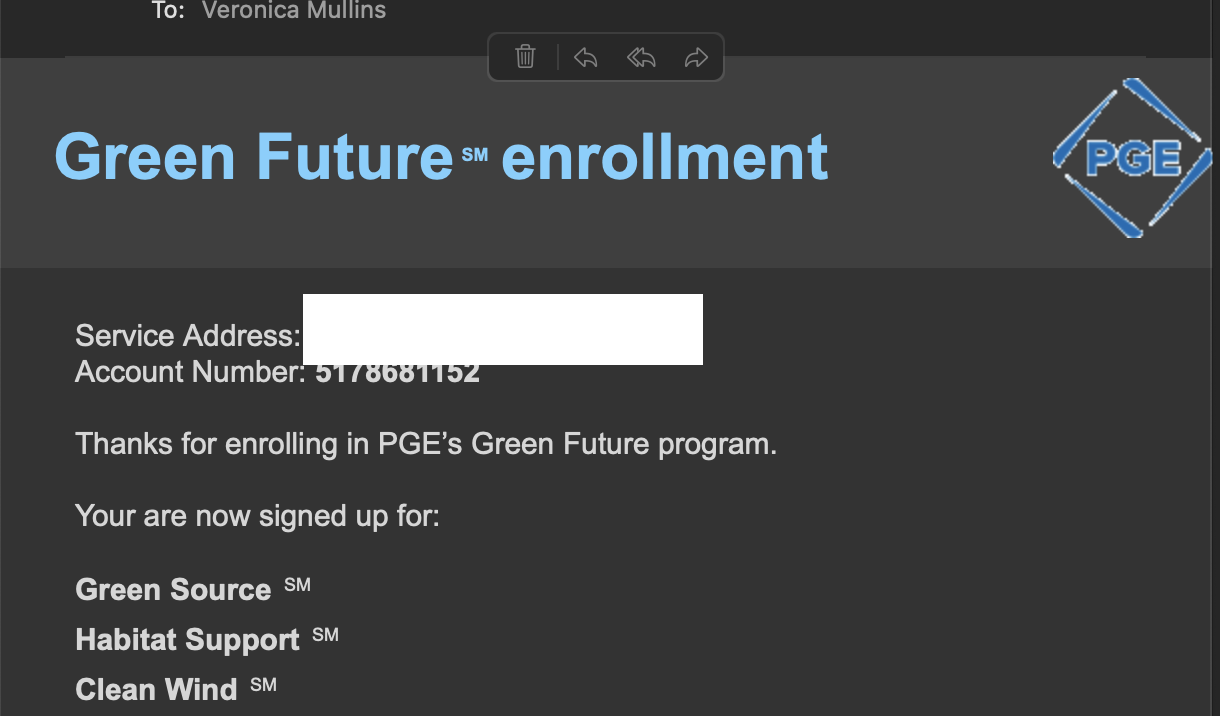capstone summer 25 Feed
BACK TO TEAM PAGE
-
 Rose Tucker 7/16/2025 9:44 AMThis week I am choosing to incorporate mindful meditation for 30 minutes a day. I get so angry at people. Angry that people only care for themselves, angry at the blatant disregard for anything besides bettering themselves.
Rose Tucker 7/16/2025 9:44 AMThis week I am choosing to incorporate mindful meditation for 30 minutes a day. I get so angry at people. Angry that people only care for themselves, angry at the blatant disregard for anything besides bettering themselves.
I read a book that postulated that inherent altruism is genetic. I think this is true to some extent, but I believe that in this modern society, that inherent altruism is mitigated by cultural norms.
I think that if we see society fall apart in our lifetimes, it will be due to the loss of this inherent altruism.
That is the fuel behind my anger.
But I have always had a temper. Cycling and running everyday help, getting older helps too.
I believe meditation is another tool I can add to my arsenal.
I meditate when i get upset, and it does help immensely. When you find yourself thought cycling, you actively try not to think of what you are thought cycling on.
I usually only spent 10 minutes meditating, and I call it time out.
If I get worked up anxiety wise, I tell whomever I am with that Rose needs a time out.
-
 Tanaya Hulsey 7/15/2025 5:52 AMFor my transportation eco-challenge because I do not drive I was wondering how I could make a difference in the ecosystem. This was challenging, but after reading last week's reflection, I decided that my online ordering is sporatic and sometimes I order small items off of prime for a small price and two-day shipping. I decided that I could probably do a once a week order (I chose Fridays) to order. By ordering throughout the week, I was making a carbon "footprint" equivalent to making several trips to the store. I feel that this is one way that I could help be sustainable in this area.
Tanaya Hulsey 7/15/2025 5:52 AMFor my transportation eco-challenge because I do not drive I was wondering how I could make a difference in the ecosystem. This was challenging, but after reading last week's reflection, I decided that my online ordering is sporatic and sometimes I order small items off of prime for a small price and two-day shipping. I decided that I could probably do a once a week order (I chose Fridays) to order. By ordering throughout the week, I was making a carbon "footprint" equivalent to making several trips to the store. I feel that this is one way that I could help be sustainable in this area. -
 Lea Avelar 7/14/2025 9:17 PMFor my sixth ecochallenge this week, I decided to drive less. I only used the car to get to work, and stayed home the rest of the time. Instead of going out for coffee, I made my own at home. Instead of eating out, I cooked my meals. Not only did I reduce how much I drove, but I also ended up saving money. I realized that most of the time when I use the car, it's just to grab something to eat or drink, which I can easily make at home. This challenge helped me see how small changes in my daily habits can cut down on unnecessary driving and support more sustainable transportation choices.
Lea Avelar 7/14/2025 9:17 PMFor my sixth ecochallenge this week, I decided to drive less. I only used the car to get to work, and stayed home the rest of the time. Instead of going out for coffee, I made my own at home. Instead of eating out, I cooked my meals. Not only did I reduce how much I drove, but I also ended up saving money. I realized that most of the time when I use the car, it's just to grab something to eat or drink, which I can easily make at home. This challenge helped me see how small changes in my daily habits can cut down on unnecessary driving and support more sustainable transportation choices. -
 Preston Eberth 7/14/2025 7:07 PMEco Challenge seven consumption. There was no group specifically for consumption, so I selected eat mindfully out of the simplicity field. Most people I know either don't have a dining room anymore or have it but its mostly unused and in the rare case they have one but eat while staring at their phone. For the last week though I don't have a dining room I had a dining space that I would set and turn off all my electronics to just sit and enjoy the food. Part of the eating mindfully is to also eat slower which is my struggle. I worked on eating items individually, fully chewing and savoring eat bit. Surprisingly this slower more intentional eating also made me eat less which some of the reading says it because by slowing and focusing on what you are eating it gives your body time to recognize it is full. Admittedly it has been a bit of a struggle to back habits and initially mind numbingly boring, but it is something I will continue with as a pseudo mediation.
Preston Eberth 7/14/2025 7:07 PMEco Challenge seven consumption. There was no group specifically for consumption, so I selected eat mindfully out of the simplicity field. Most people I know either don't have a dining room anymore or have it but its mostly unused and in the rare case they have one but eat while staring at their phone. For the last week though I don't have a dining room I had a dining space that I would set and turn off all my electronics to just sit and enjoy the food. Part of the eating mindfully is to also eat slower which is my struggle. I worked on eating items individually, fully chewing and savoring eat bit. Surprisingly this slower more intentional eating also made me eat less which some of the reading says it because by slowing and focusing on what you are eating it gives your body time to recognize it is full. Admittedly it has been a bit of a struggle to back habits and initially mind numbingly boring, but it is something I will continue with as a pseudo mediation.-
 Amy Minato 7/14/2025 8:34 PM
Amy Minato 7/14/2025 8:34 PM- TEAM CAPTAIN
its amazing how different eating has become. when i was young my family always sat around the table eating together. i think that is rare nowl
-
-
 Lea Avelar 7/14/2025 4:20 PMFor my fifth ecochallenge, I helped my family host a lunch for relatives visiting from Seattle. To make things easier and more enjoyable, everyone took on one dish so no one felt overwhelmed. I made a cucumber salad, my sister prepared guacamole, and my brother grilled the meat. When our cousins arrived, they saw us cooking and offered to help out too. One cousin made the rice, and another helped with the dishes. Since everyone pitched in, the lunch came together quickly and felt like a true group effort. It was a nice reminder that building community can be as simple as sharing a meal and working together.
Lea Avelar 7/14/2025 4:20 PMFor my fifth ecochallenge, I helped my family host a lunch for relatives visiting from Seattle. To make things easier and more enjoyable, everyone took on one dish so no one felt overwhelmed. I made a cucumber salad, my sister prepared guacamole, and my brother grilled the meat. When our cousins arrived, they saw us cooking and offered to help out too. One cousin made the rice, and another helped with the dishes. Since everyone pitched in, the lunch came together quickly and felt like a true group effort. It was a nice reminder that building community can be as simple as sharing a meal and working together.-
 Amy Minato 7/14/2025 8:30 PM
Amy Minato 7/14/2025 8:30 PM- TEAM CAPTAIN
-
-
 Tanaya Hulsey 7/14/2025 7:51 AMFor my community eco-challenge this week I helped a neighbor mow his yard and helped with the weed eater and cutting back blackberries. My neighbor is someone that works and commutes Monday-Friday and the weekends are valuable for a little R & R. Because of the fire season, I woke up early on Sunday and began yardwork about 7 am. I feel that helped not only him and his wife, but also helped the community and the block because the weeds were getting tall and many people walk on that road to go to the park and swimming pool.
Tanaya Hulsey 7/14/2025 7:51 AMFor my community eco-challenge this week I helped a neighbor mow his yard and helped with the weed eater and cutting back blackberries. My neighbor is someone that works and commutes Monday-Friday and the weekends are valuable for a little R & R. Because of the fire season, I woke up early on Sunday and began yardwork about 7 am. I feel that helped not only him and his wife, but also helped the community and the block because the weeds were getting tall and many people walk on that road to go to the park and swimming pool.-
 Amy Minato 7/14/2025 8:42 PM
Amy Minato 7/14/2025 8:42 PM- TEAM CAPTAIN
-
-
 Veronica Mullins 7/13/2025 11:28 PMFor my sixth eco-challenge, I undertook it as a two-parter.
Veronica Mullins 7/13/2025 11:28 PMFor my sixth eco-challenge, I undertook it as a two-parter.
a) I made the decision to drive less by only taking necessary trips in my car. Typically I would drive around town in the morning as a sort of entertainment, however I understand this is wasteful and unnecessary. I decided to instead spend 30 minutes (or more) outside each day either in nature or taking a walk.
b) Since it is summer and the weather is warmer, I want to spend more time in nature. Most days I spent extra time outdoors with my dog either walking around the neighborhood. On Monday, Taz and I went to the riverfront in Sellwood, and on Friday I went paddle boarding on Sauvie Island.
I can't deny that spending more time outdoors is beneficial for me. I am getting exercise and spending time outdoors and connecting with nature which is good for my mental health.
I know this is an opportunity for me to disconnect from screens, but I had to snap this photo of Taz watching a boat on the river.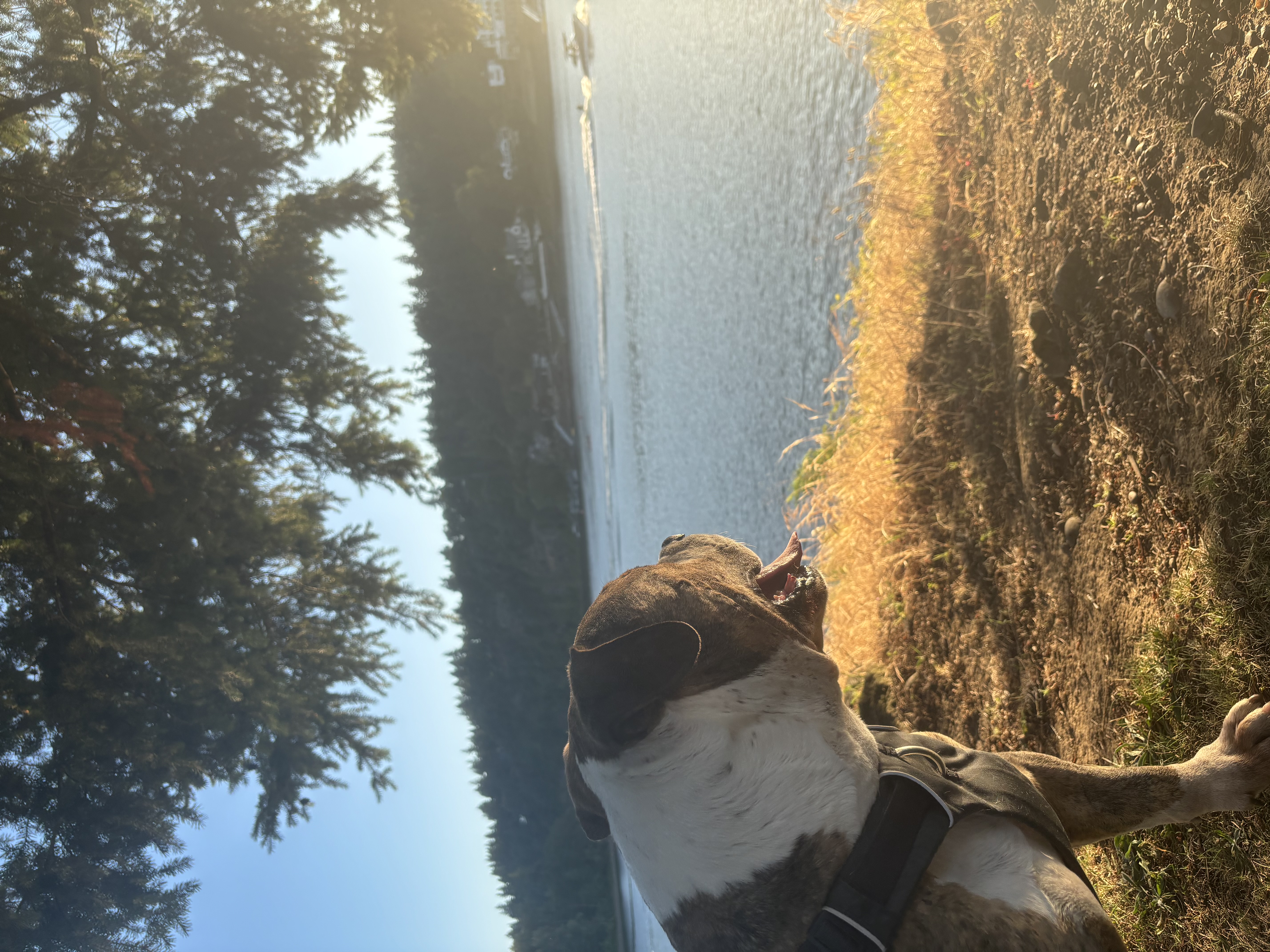
-
 Amy Minato 7/14/2025 8:15 PM
Amy Minato 7/14/2025 8:15 PM- TEAM CAPTAIN
-
-
 Veronica Mullins 7/13/2025 11:05 PMFor my eco-challenge this week, I decided to do a few things that I have been meaning to do, but had never taken the time to do it and they could be done online.
Veronica Mullins 7/13/2025 11:05 PMFor my eco-challenge this week, I decided to do a few things that I have been meaning to do, but had never taken the time to do it and they could be done online.
a) I registered to vote at my current address. I was registered to vote in the previous state I had lived in, but never did so after moving here because I wasn't sure where I was to land. However, at this point I feel I have been here long enough and I no longer will allow myself to make excuses. By registering to vote. I am doing my part as a member of my community to be able to enact change for the future.
b) I enrolled in PGE's 3 sustainability options - Green Source, Habitat Support, and Clean Wind. I had been making the excuse that it would add to my electricity bill, however I would spend the expected addition to be about as much as my daily coffee would be. Also, since I am doing my part to turn off any lights and unplug any electronics when not in use, this should decrease my electricity bill initially, so it should even out. I can also spare a few dollars to make my energy useage more sustainable!-
 Amy Minato 7/14/2025 8:16 PM
Amy Minato 7/14/2025 8:16 PM- TEAM CAPTAIN
-
-
 AYEDH ALKHESAIWI 7/13/2025 10:54 PMFor my sixth eco-challenge I decided to use more public transit. I’ve never really shied away from using busses or trains but that is maybe because I’ve never been exposed to bad quality transit. The transit in Portland seems fine to me and I cannot recall any bad incident in a bus or at a stop. The reason I went with this challenge is because for a while I’ve grown used to using “uber” than public transit. To be more frank, using a bus is infinitely cheaper than using car services that charge too much, and at this point the time difference is not that major if you keep up with routes and stops and their timings. I suppose technology makes it easier to use a bus because you can go on Google Maps, choose a destination you would like to go to, and look at all the available routes and options. They always show the exact routes and stops and their timings. From my estimation the timing can be off by a couple of minutes, and if there is a major issue, then the app will show you that (if the bus will be late by 30 minutes, for example, which happened to me when I lived in Spokane WA). I’m looking into using the Amtrak more because I spend some of my weekends in Corvallis or Eugene with friends & family.
AYEDH ALKHESAIWI 7/13/2025 10:54 PMFor my sixth eco-challenge I decided to use more public transit. I’ve never really shied away from using busses or trains but that is maybe because I’ve never been exposed to bad quality transit. The transit in Portland seems fine to me and I cannot recall any bad incident in a bus or at a stop. The reason I went with this challenge is because for a while I’ve grown used to using “uber” than public transit. To be more frank, using a bus is infinitely cheaper than using car services that charge too much, and at this point the time difference is not that major if you keep up with routes and stops and their timings. I suppose technology makes it easier to use a bus because you can go on Google Maps, choose a destination you would like to go to, and look at all the available routes and options. They always show the exact routes and stops and their timings. From my estimation the timing can be off by a couple of minutes, and if there is a major issue, then the app will show you that (if the bus will be late by 30 minutes, for example, which happened to me when I lived in Spokane WA). I’m looking into using the Amtrak more because I spend some of my weekends in Corvallis or Eugene with friends & family.-
 Dianna Ferrell 7/13/2025 11:23 PMHello Ayedh! I am glad to hear that you have not had any bad experiences on public transit. The few times I have taken the max around town I never encountered anything unusual myself but I do understand being cautious about surroundings, never hurts to be aware! Uber can be very costly overtime and I have been curious about the cost difference between public busses and Uber so that is good to know that it ended up being significantly cheaper in the end. I did not know you could use Google Maps for the bus routes and stops, this is something I should look more into since GPS is part of my career and how to improve issues such as transportation routes. I am unfamiliar with the Amtrak options and go to Corvallis a lot to visit a friend, I should investigate this for myself. Thanks for sharing your findings and keep up the great work!
Dianna Ferrell 7/13/2025 11:23 PMHello Ayedh! I am glad to hear that you have not had any bad experiences on public transit. The few times I have taken the max around town I never encountered anything unusual myself but I do understand being cautious about surroundings, never hurts to be aware! Uber can be very costly overtime and I have been curious about the cost difference between public busses and Uber so that is good to know that it ended up being significantly cheaper in the end. I did not know you could use Google Maps for the bus routes and stops, this is something I should look more into since GPS is part of my career and how to improve issues such as transportation routes. I am unfamiliar with the Amtrak options and go to Corvallis a lot to visit a friend, I should investigate this for myself. Thanks for sharing your findings and keep up the great work! -
 Amy Minato 7/14/2025 8:27 PM
Amy Minato 7/14/2025 8:27 PM- TEAM CAPTAIN
the amtrak between eugene and portland is really easy and comfortable. i dont think it stops in corvallis but it does stop in albany which is close
-
-
 AYEDH ALKHESAIWI 7/13/2025 10:54 PMFor my fifth eco-challenge I decided to engage in a custom activity I called “Community Engagement.” The idea is to spend more time with neighbors and get to know them better. I live in a huge apartment building with hundreds and hundreds of other people. There is half a floor dedicated to holding events (sometimes weekly or based on holiday) where people can gather and do fun activities. The management in my building is usually responsible for this. Most times they host an event related to consuming wine and I can’t do that for religious purposes but sometimes they do host board games and provide snacks and other stuff. I have gone there a couple of times before and it was fun to play chess and to meet new people. So I decided to go there again last Wednesday and spend a few hours with my neighbors. I didn’t really find anyone living in my floor this time around but that didn’t matter too much. One thing I never noticed before is how vibrant the setting is. People of all walks of life and different backgrounds live in my building but it’s difficult to see that if nobody is willing to connect with others. This is something I’d like to make a habit because in order to know the environment you have to know the people living in it, and how else can we preserve the former when we don’t know the latter?
AYEDH ALKHESAIWI 7/13/2025 10:54 PMFor my fifth eco-challenge I decided to engage in a custom activity I called “Community Engagement.” The idea is to spend more time with neighbors and get to know them better. I live in a huge apartment building with hundreds and hundreds of other people. There is half a floor dedicated to holding events (sometimes weekly or based on holiday) where people can gather and do fun activities. The management in my building is usually responsible for this. Most times they host an event related to consuming wine and I can’t do that for religious purposes but sometimes they do host board games and provide snacks and other stuff. I have gone there a couple of times before and it was fun to play chess and to meet new people. So I decided to go there again last Wednesday and spend a few hours with my neighbors. I didn’t really find anyone living in my floor this time around but that didn’t matter too much. One thing I never noticed before is how vibrant the setting is. People of all walks of life and different backgrounds live in my building but it’s difficult to see that if nobody is willing to connect with others. This is something I’d like to make a habit because in order to know the environment you have to know the people living in it, and how else can we preserve the former when we don’t know the latter?-
 Amy Minato 7/14/2025 8:29 PM
Amy Minato 7/14/2025 8:29 PM- TEAM CAPTAIN
the board game event seems fun! it does seem odd that alcohol is involved in so many social events even tho people are increasingly drinking less of it -
 Preston Eberth 7/14/2025 8:31 AMThat is great you are joining the weekly social event; my old apartment was similar with hundreds of tenants moving through their own lives in a bubble so my old roommate's and I would open our door and make a big dinner and just have people pop in. It can be so difficult to connect with people from our isolated boxes.
Preston Eberth 7/14/2025 8:31 AMThat is great you are joining the weekly social event; my old apartment was similar with hundreds of tenants moving through their own lives in a bubble so my old roommate's and I would open our door and make a big dinner and just have people pop in. It can be so difficult to connect with people from our isolated boxes.
-
